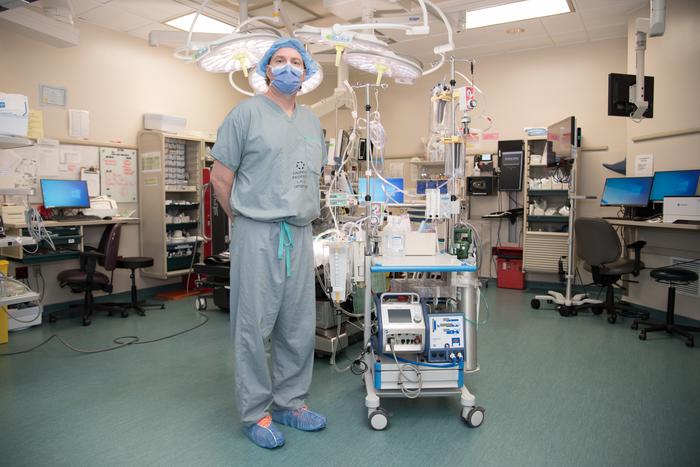LONDON, ON – A team at Lawson Health Research Institute is the first in Canada to perform a transplant using a technique called abdominal normothermic regional perfusion (A-NRP), which could lead to more organs being available for transplant. The technique was used to optimize organs from two donors in April 2024 at London Health Sciences Centre (LHSC), resulting in the successful transplantation of two kidneys and two livers to four patients.

Credit: London Health Sciences Centre
LONDON, ON – A team at Lawson Health Research Institute is the first in Canada to perform a transplant using a technique called abdominal normothermic regional perfusion (A-NRP), which could lead to more organs being available for transplant. The technique was used to optimize organs from two donors in April 2024 at London Health Sciences Centre (LHSC), resulting in the successful transplantation of two kidneys and two livers to four patients.
“Organ donation after circulatory death (when the heart stops beating) has historically been less reliable than organ donation after brain death,” explained Dr. Anton Skaro, Associate Scientist at Lawson and Surgical Director of Liver Transplantation at LHSC. “This is because there is a higher risk of organ damage after circulatory death since oxygen and blood flow stop.”
Dr. Skaro and his team at LHSC were the first in Canada to use A-NRP, which has the potential to protect abdominal organs after circulatory death in a donor by using a special pump to selectively restore blood flow to the organs. A-NRP could increase the likelihood of a successful transplantation, ensuring donor wishes are fulfilled and enhancing patient outcomes.
“Unfortunately, we do not have enough donated organs to match the number of patients waiting for transplantation,” said Dr. Skaro. “By protecting the quality of organs after circulatory death, A-NRP could help significantly increase the number of available donor organs to save more lives.”
The research team led by Dr. Skaro is currently studying the use of A-NRP to ensure it is safe for donors. The team plans to include 20 to 30 donors in the study.
Dr. Skaro notes there is an immense amount of potential in A-NRP. Once this study has been completed, Dr. Skaro’s team hopes to expand the use of this technique to other transplant centres throughout Canada.
“This work would not be possible without the collaborative efforts of a multidisciplinary team who have expertise in neurocritical care, perfusion, critical care, ethics, donation and transplant,” said Dr. Skaro. “It would also not be possible without the help of numerous partners, including Ontario Health (Trillium Gift of Life Network), and the generosity of the community and donors”
The research was generously funded by The Move for Life Foundation, London Health Science Foundation, Academic Medical Organization of Southwestern Ontario (AMOSO), and the Canadian Donation and Transplantation Research Innovation Grant.
Subject of Research
People



